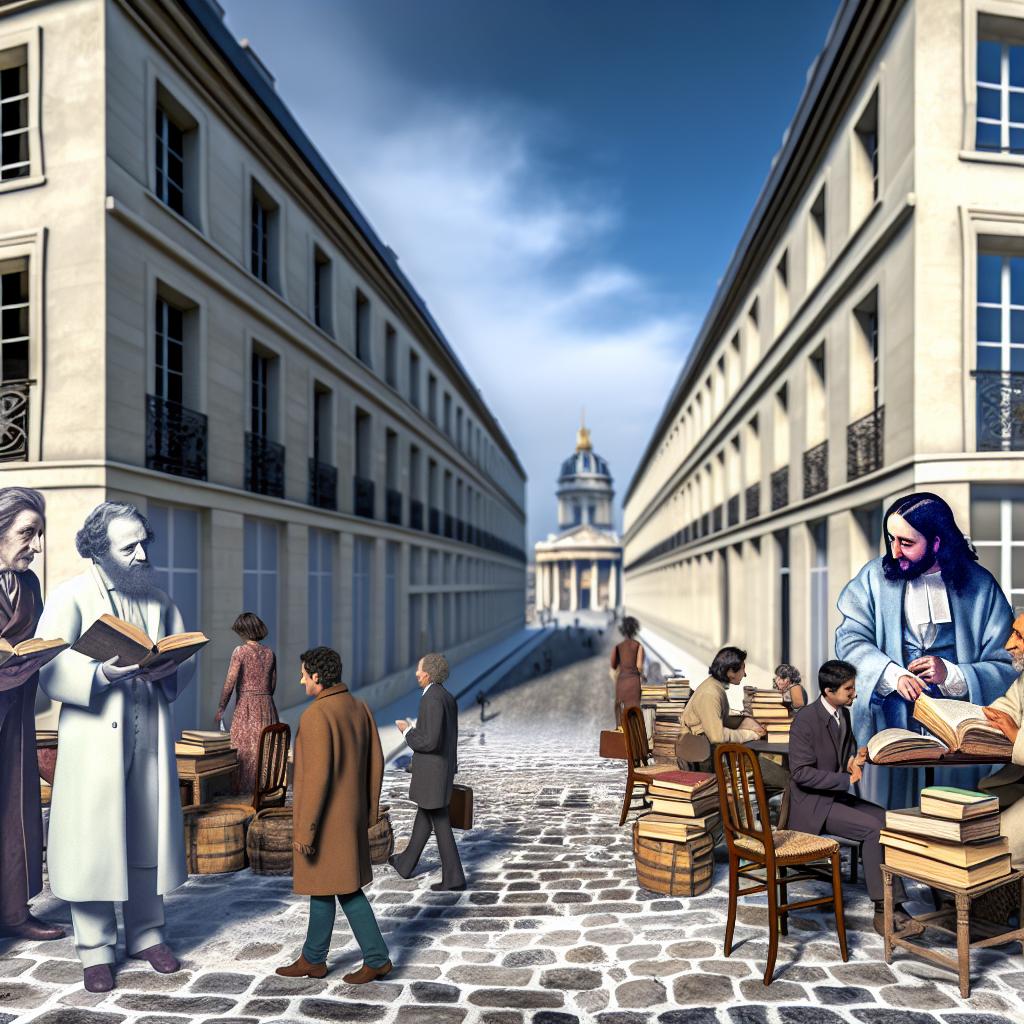The Influence of Jean-Paul Sartre and Simone de Beauvoir in Paris
Jean-Paul Sartre and Simone de Beauvoir, two intellectual giants, have left an indelible imprint on Paris. Their contributions to existentialism and feminism continue to resonate in various cultural and philosophical settings across the city. Their lives, works, and the intellectual environment they fostered in Paris provide a unique lens through which to explore modern thought.
Sartre’s Existentialism
Jean-Paul Sartre, a leading figure in existential philosophy, emphasized themes such as freedom, choice, and the intricacies of human existence. His ideas continue to be discussed in academic settings and beyond. Sartre’s extensive body of work, involving not only philosophical texts but also drama, novels, and essays, underlines his assertion that “existence precedes essence.” This concept suggests that humans are defined by their actions rather than any preordained nature, thus placing emphasis on personal responsibility and ethical decision-making within an indifferent universe.
Saint-Germain-des-Prés
The historic neighborhood of Saint-Germain-des-Prés is a pivotal point in the intellectual landscape of Paris, closely associated with Sartre and de Beauvoir. It was here, in the hustle and bustle of cafes and brasseries, that they engaged in profound discussions with other writers and thinkers, laying the groundwork for existentialist thought. Visitors today can still immerse themselves in this rich history at establishments like the Les Deux Magots and Café de Flore, where the air still seems charged with questions of existence and identity. These cafes have preserved their legacy, making them not just tourist attractions, but living museums of French philosophical history.
Legacy in Literature
Sartre’s literary prowess is evident in his plays and novels, such as No Exit and Nausea, which are seminal works exploring existential themes. These works interrogate the human condition, freedom, and the existential dread of making choices. Through No Exit, Sartre famously illustrated the idea of “Hell is other people,” exploring themes of coexistence and interpersonal relationships. Nausea, his existential novel, delves into the internal struggles of the protagonist, offering a narrative embodiment of existential philosophy. These works frequently form part of literature syllabi, providing a pathway to understanding existentialism that goes beyond traditional philosophy textbooks.
Simone de Beauvoir’s Feminism
Simone de Beauvoir is noted for her groundbreaking work in feminist theory, especially through her landmark text The Second Sex. In this book, she presented a critical examination of the roles and perceptions of women in society, calling for equality and emancipation. Her work deconstructs societal norms and offers frameworks for understanding gender as a social construct rather than a natural category, influencing countless feminist movements and ideologies around the world.
Academics and Advocacy
De Beauvoir’s influence extends into academics, informing and inspiring feminist studies. Her works challenge readers to reconsider established gender norms, advocating for a society built on equality. The integration of her texts in both high school and university curricula worldwide underscores her enduring impact. Her influence can be explored further through various events and lectures offered in Paris, supported by institutions that promote public understanding of feminist theory. For those interested in these cultural explorations, resources such as the Paris Convention and Visitors Bureau offer updates on feminist-themed events and exhibitions.
Cultural Impact
De Beauvoir’s impact reaches beyond the confines of academia, permeating various cultural productions, including films, theatre, and art exhibitions. Her ideas and advocacy for gender equality are explored and echoed in these mediums, providing engaging avenues for public discourse on feminism and gender. Paris, as a cultural hub, hosts numerous events and exhibitions, each contributing to an ongoing dialogue about gender and societal roles. Through these cultural lenses, de Beauvoir continues to provoke thought and inspire change, ensuring her arguments about gender equality remain relevant in contemporary society.
Visiting Sartre and De Beauvoir’s Final Resting Place
For admirers and scholars alike, a visit to the Cimetière du Montparnasse offers a chance to pay homage to Sartre and de Beauvoir. Their shared grave site is often adorned with flowers, notes, and other tokens from those who have found inspiration in their work and lives. This place transcends being a mere burial site; it is a symbol of their enduring legacy and the intellectual heights they reached. The inscription on their tomb resonates as an affirmation of their partnership, both personal and intellectual.
In conclusion, the legacy of Jean-Paul Sartre and Simone de Beauvoir in Paris is profound and multifaceted, offering rich insights into existentialism and feminism through both their philosophical and literary contributions. Their collaborative and individual work continues to shape contemporary thought, providing timeless discourse on the essence of human existence and the pursuit of equality. As Paris remains a city of ideas and cultural dynamism, the imprints of Sartre and de Beauvoir resonate, urging each new generation to confront the complexities of freedom, choice, and social justice.








